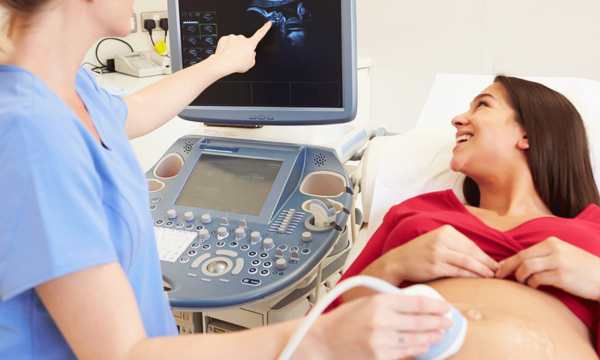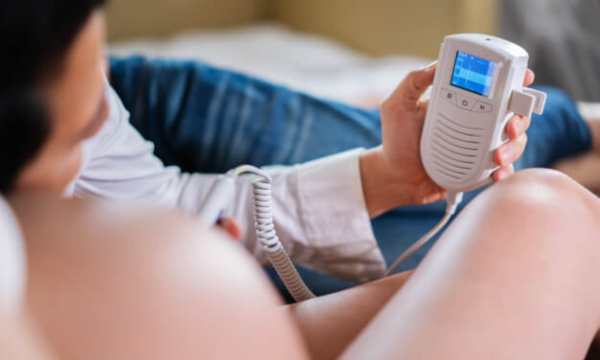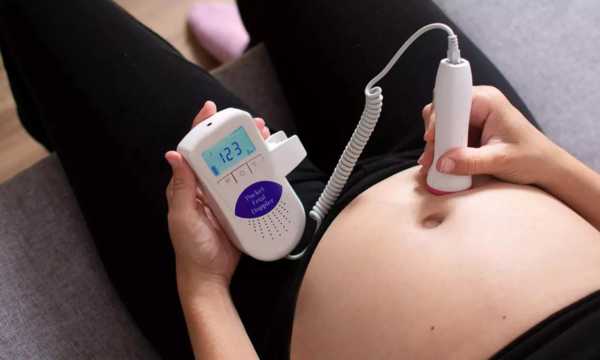Fetal Monitoring: Taking Care of Your Baby’s Heart
With fetal monitoring, you closely follow the most precious sound: your baby’s heart.
Pregnancy is a unique journey, full of unforgettable moments and emotions.
Every sensation, every heartbeat, every movement of the baby inside the womb has a deep meaning, and fetal monitoring emerges as a comforting way to track the well-being of the baby.
During pregnancy, especially in the last weeks, it’s common for mothers’ anxiety to increase.
In this scenario, fetal monitoring becomes even more essential, helping the mother to feel secure and connected to her child’s health.
This exam, though simple, offers great relief as it allows you to closely monitor the baby’s development and the progress of the pregnancy, ensuring everything is going as expected.
Throughout this content, we will highlight the benefits and importance of fetal monitoring, a simple yet essential exam to ensure the health and well-being of your baby.
The Emotion of Hearing Your Little One’s Heart
Nothing compares to the emotion of hearing your baby’s heartbeat for the first time. This magical moment is undoubtedly one of the most emotional of the pregnancy.
Fetal monitoring allows you to hear your baby’s heart clearly and accurately, creating a deep connection between mother and child.
In addition to being an emotional experience, this procedure plays a crucial role in ensuring the baby is healthy and in full development.
By hearing the heartbeat, it’s possible to observe frequency patterns that indicate fetal well-being.
Benefits of Fetal Monitoring
Fetal monitoring offers a range of benefits for the health of both the mother and the baby, being an essential tool to track the pregnancy’s well-being and detect any changes early. This exam is vital to:
Evaluate the baby’s heart rate
Heart rate is a vital indicator of the baby’s health. Through monitoring, it’s possible to observe the heartbeats, checking if they’re within a healthy range, which indicates that the baby is receiving an adequate amount of oxygen and nutrients.
Check if the baby is receiving enough oxygen
Oxygen is essential for fetal development and for the functioning of organs. Fetal monitoring is capable of measuring the baby’s vital signs.
Provide security
In addition to the other benefits, it also offers the mother a sense of security by allowing her to closely monitor the baby’s health. Knowing that the baby is well helps to reduce anxiety and provides peace of mind during pregnancy.

Happiness-in-hearing-your-babys-heartbeat-(Source-Google)
At How Many Weeks Can I Hear the Baby’s Heart?
The wait for the arrival of a baby is marked by moments of expectation and emotion, and hearing the first beats of your baby’s heart is one of the most exciting experiences for any pregnant woman.
But when during the pregnancy can you hear that long-awaited sound?
In general, the baby’s heart starts beating very early, around the fifth week of pregnancy. However, it’s not possible to hear these beats conventionally until the pregnancy is a bit further along.
Between the 10th and 12th week, with the use of a device called a Doppler, doctors can detect the baby’s heart activity, which is the first moment many pregnant women get to hear their child’s heart.
At first, the sound can be very soft, so it’s common for doctors to use more sophisticated devices, like ultrasound, to detect the beats.
By the 20th week of pregnancy, depending on the baby’s position and the mother’s abdominal wall thickness, it’s possible to hear the baby’s heart more clearly.
Devices to Hear the Baby’s Heartbeat
During pregnancy, hearing the baby’s heartbeat is an emotional and reassuring experience for many mothers.
To do so, different devices are used to monitor the baby’s health and provide the mother with the relief of knowing everything is going well.
Each of these devices has specific characteristics and is used at different stages of the pregnancy. Let’s look at the main ones:
Ultrasound
Ultrasound is the most common test used to detect the baby’s heartbeat in the early weeks of pregnancy. It is essential for confirming heart activity for the first time, as well as for monitoring fetal development.
Doppler Monitor
The Doppler monitor is a portable device that amplifies the sounds of the baby’s heart, allowing mothers to hear the heartbeat from the 10th week of pregnancy.
This device uses high-frequency sound waves to capture the baby’s heart sound and transmit it at a higher volume.
Home Fetal Doppler
The home fetal Doppler is a portable device that some pregnant women use to monitor to the baby’s heartbeats at home.
While the device is easy to use and quite affordable, it’s important to remember it should be used with caution.

Home-Fetal-Doppler-(Source-Google)
Obstetric Stethoscope
The obstetric stethoscope, also known as the “feto-scope”, is a more traditional device, used by healthcare professionals to listen to the baby’s heartbeats from the 18th or 20th week of pregnancy.
Cardiotocograph (CTG)
The cardiotocograph is a more advanced device used to monitor not only the baby’s heart rate but also the mother’s uterine contractions, especially in the later months of pregnancy.
Apps to Monitor the Baby’s Heartbeat
With the advancement of technology, several smartphone apps have been developed to help pregnant women accompany their baby’s health, including the ability to monitor heartbeats.
These apps, usually combined with devices like the Fetal Doppler or other sensors, monitor the baby’s sounds.
Tips to Strengthen the Baby’s Heart
Taking care of your baby’s heart is a priority, and this can be done in various ways during pregnancy. Some tips include:
- Maintaining a balanced diet rich in essential nutrients like folic acid and iron.
- Avoiding stress and getting enough rest to ensure both you and your baby stay healthy.
- Engaging in light physical activities, such as walking, to promote good blood circulation.
- Consulting your doctor regularly and following their guidance for proper monitoring.
Conclusion
Fetal monitoring is an essential tool to ensure your baby’s well-being and provide security during pregnancy.
With the help of this simple and painless test, you can be sure that you are doing everything you can to care for your little one’s health.
Hearing your baby’s heartbeat is not just an emotional experience, but also an indicator of its vitality and well-being.
Cherish every moment of this journey, and remember that fetal monitoring is here to ensure everything is going well.
 The Best Rugby Players Who Transformed the Sport
The Best Rugby Players Who Transformed the Sport
Rugby players are true giants of the sport, captivating fans with their skills and passion. Learning about […]
More Discover When You Can Start Monitoring Fetal Heartbeat
Discover When You Can Start Monitoring Fetal Heartbeat
Find out when you can start monitoring fetal heartbeat and experience this amazing moment! How about we […]
More Diet for Diabetics: Simple Recipes for Efficient Sugar Control
Diet for Diabetics: Simple Recipes for Efficient Sugar Control
A diet for diabetics should be carefully planned to keep blood sugar levels under control. In this […]
More